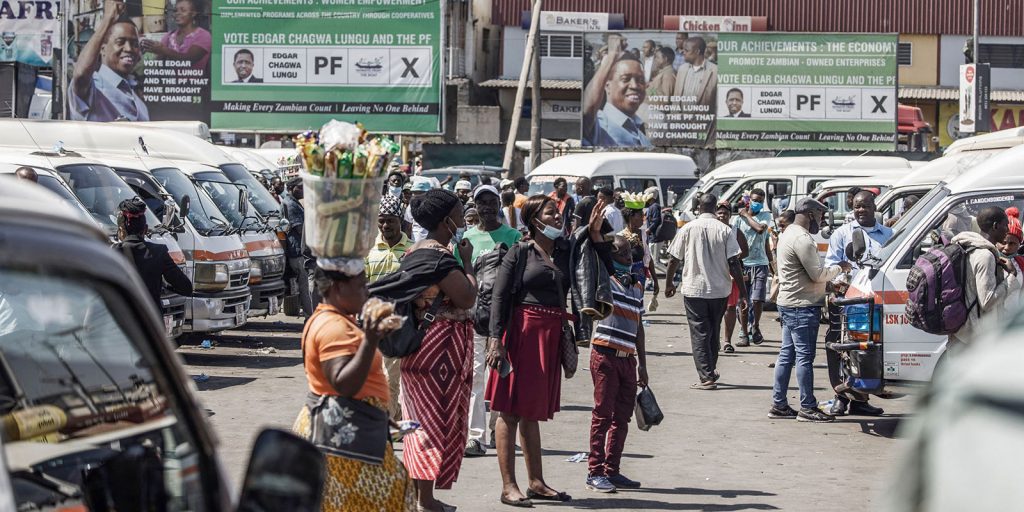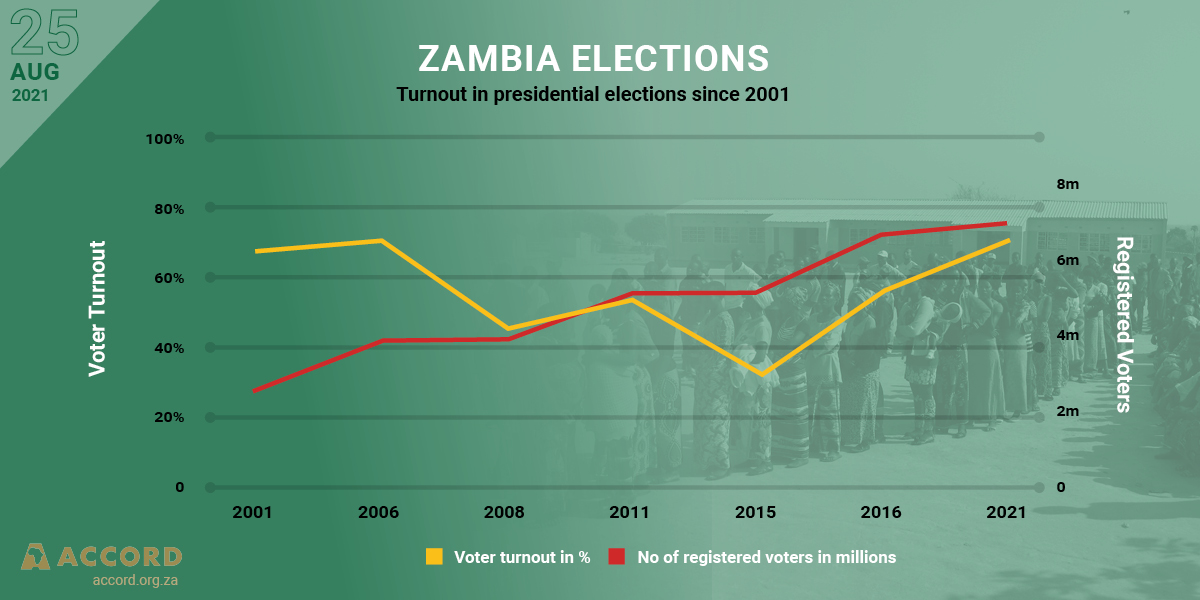Election Overview
The 2021 General elections were held during a period of heightened political tension, economic challenges and arguably shrinking democratic space. The political scene during the election period was characterized by pockets of violence, misinformation and hate speech, particularly by political party leaders and their supporters from the PF and UPND. Pre-election activities were also characterised by shrinking democratic space; closure of media houses, censoring of public opinions, lack of transparency and restriction of opposition political parties to mobilize and gather (also partly attributed to the COVID-19 pandemic restrictions).
The 2021 elections in #Zambia were held during a period of heightened political tension, which was characterized by economic challenges, pockets of violence, misinformation, hate speech and COVID-19 pandemic restrictions @katongoseyuba
Tweet
Aside the political environment and the shrinking democratic space, economic hardships played a significant role in the election of the UPND. In the last few years, Zambia has experienced a sharp economic decline, due to fluctuations in copper prices, climate change impacts, high debt and unsustainable fiscal policies, high inflation, and mismanagement of public resources. The COVID-19 pandemic further worsened the economic situation, pushing the country’s economy into recession. The promise of the UPND was premised on economic restructuring to improve the country’s economic outlook and to sustainably manage the debt levels, provide employment and to reduce commodity prices.
The atmosphere on election day was generally peaceful and calm, although some parts of the country recorded incidents of violence. Out of an estimated 18 million Zambians, the total number of registered voters was 7, 023, 499, 70.61 % of whom turned out to vote. It was arguably the highest voter turnout in recent years. Although no official report has been drawn up, the country experienced an Internet shutdown on election day, with some sections of society claiming that the move was orchestrated by the government to restrict and limit information and dissemination of election results.
Out of an estimated 18 million Zambians, the total number of registered voters was at just over 7 million, 70.61 % of whom turned out to vote. It was arguably the highest voter turnout in recent years @katongoseyuba
Tweet
After 12th August the atmosphere was characterized by anxiety as the public began to wait for official results from all the different constituencies across the country. The main interest was on the presidential results. Opposition leader Hakainde Hichilema led by a wide margin with 40% of the votes counted; President Edgar Chagwa Lungu alleged that the election was not free and fair due to electoral violence against polling agents of his political party the PF, in three provinces namely Southern, North-Western, and Western provinces, but opposition parties and observers disputed the claims. As the results were being tallied, it was feared that President Lungu would not concede defeat. Candidates from opposition parties and other stakeholders urged President Lungu to accept the electoral outcome.
After a thorough verification of all results the Electoral Commission of Zambia (ECZ) finally announced the presidential results in the early hours of Sunday 15th August 2021. The UPND leader Hakainde Hichilema was declared winner of the election beating his closest rival Edgar Chagwa Lungu with a difference of 981, 568 votes (see official election results). The incumbent President later conceded defeat and congratulated the President-Elect Hichilema on his resounding victory. President Edgar Chagwa Lungu promised a smooth transition of power to the incoming President and government much to the delight of the Zambian people and the international community.

Zambia’s outlook post 2021
The new President was sworn in on 24th August 2021 during an inauguration ceremony held at the National Heroes stadium in Lusaka. He had, however, started to set a new tone even before his inauguration. In his first address since being declared winner, President-Elect Hichilema promised to foster a better democracy, address rampant corruption, uphold the rule of law, restore order, respect human rights, and promote economic investments and create employment opportunities for the youth. He also pledged that key institutions that ensure good governance, such as the Civil Service, the Anti-Corruption Commission (ACC), the Financial Intelligence Centre (FIC) and the Drug Enforcement Commission (DEC), would be run autonomously, free from political interference.
After the elections, the Zambian economy received a boost as the ‘Kwacha’ began to appreciate against the United States Dollar and other currencies. Investor confidence was boosted by the change in government and the policies of the incoming UPND government. For example, it undertook to abolish political interference in the running and collection of revenue of public markets and bus stations, and announced that these would be returned to the relevant local authorities. This move was welcomed by the public as most revenue for national development was misused by political cadres in the past.
The general post-election outlook in #Zambia is one filled with high optimism and confidence in the incoming government @katongoseyuba
Tweet
The general post-election outlook is one filled with high optimism and confidence in the incoming government. Most of the population especially the youth are optimistic that the new government will improve the country’s social, economic, and political status. The next five years will be interesting; and it is yet to be seen whether the new government led by President Hichilema will be able to turn the country’s political and economic fortune around and deliver on the promises the UPND party and the new President made to the Zambian people.
Katongo Seyuba is a researcher, and development practitioner with interest in sustainable development, climate change, democracy, citizen participation and poverty reduction. Currently he is a research assistant at the Stockholm International Peace and Research Institute (SIPRI).


